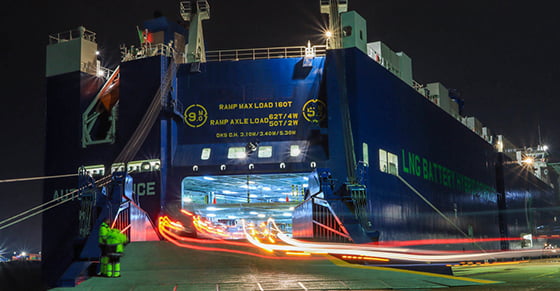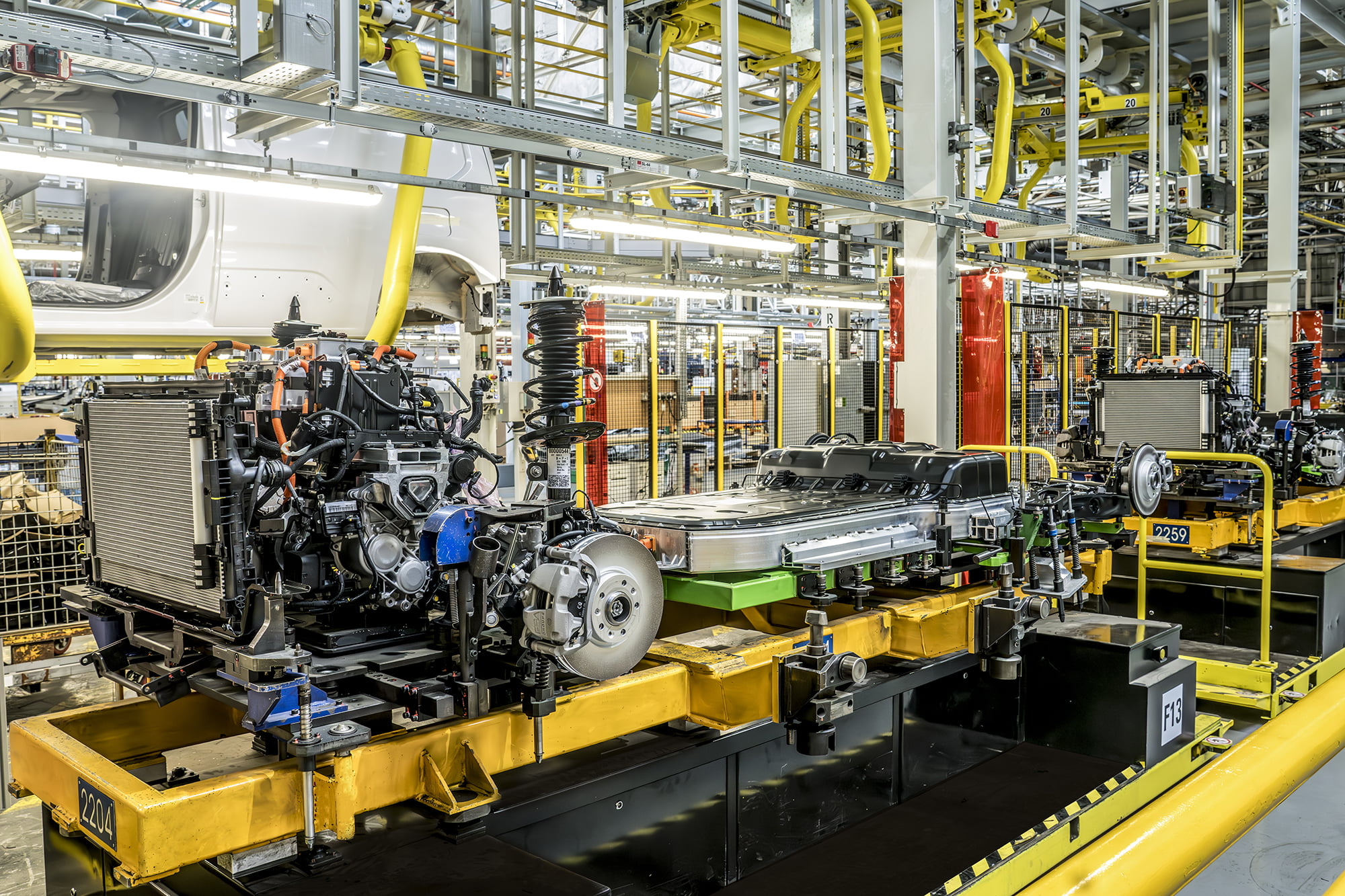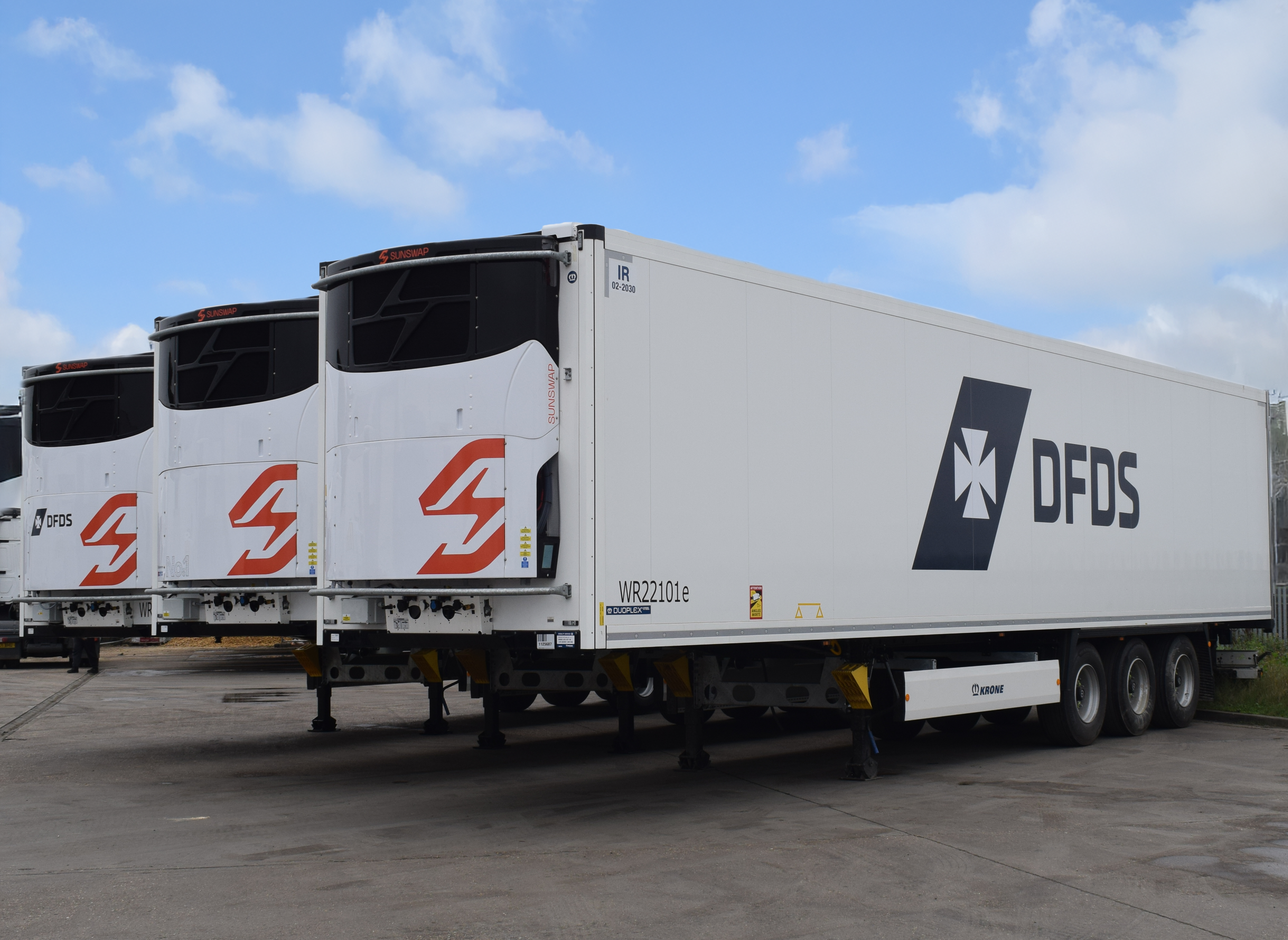
The UK automotive sector is innovating quickly to develop cutting-edge powertrains but for fleet operators looking to decarbonise while getting greater efficiencies from their assets, they are also looking to a much older power source.
With operators increasingly having solar panels fitted to their commercial vehicles, companies can position themselves at the forefront of more sustainable logistics, setting new standards and futureproofing their business for a more environmentally responsible future.
For example, Sunswap recently supplied the Peterborough depot of transport firm DFDS with the first 10 of its zero-emission Endurance transport refrigeration units (TRUs).
The Sunswap Endurance product combines battery and solar panels mounted on refrigerated trailers to keep temperature-controlled goods cold during transport.
This zero emission system, manufactured in Leatherhead, Surrey, replaces traditional diesel-powered TRUs, ensuring a range of consumer products – from foodstuffs to pharmaceuticals – stay within critical temperature bands.
The order follows a successful trial process DFDS undertook with Sunswap in 2022, which demonstrated that with 10 Endurance solar and battery TRUs on fleet, the logistics operator could remove 895 tonnes of CO2 and save about 500,000 litres of diesel fuel over a ten-year unit lifetime, compared with a traditional TRU.
These trials also indicated that on one of DFDS’s longer routes, 22 hours of cooling could be provided from one full charge – typically taking 80 minutes – of the TRU battery unit.
DFDS also established that switching to Sunswap Endurance would save 71% of the operating costs compared to running a diesel refrigeration unit – a 13% saving in total cost of ownership.
Depending on conditions, the trailer-top mounted solar panels can typically provide 65-100% of the charge needed to operate the refrigeration unit, significantly reducing reliance on grid charging.
Matt O’Dell, Managing Director of Cold Chain, UK & Ireland at DFDS, said the move signifies a shift away from legacy diesel technology for cold storage transport.
“The Sunswap trailers provide a huge opportunity for us to reduce the carbon footprint of our operations and further strengthen our offering to customers,” he added.
“We aim to achieve a 75% reduction in CO2e emissions intensity by 2030 and to be net zero by 2050, and so introducing the Sunswap trailers to our UK fleet is an exciting part of that.”
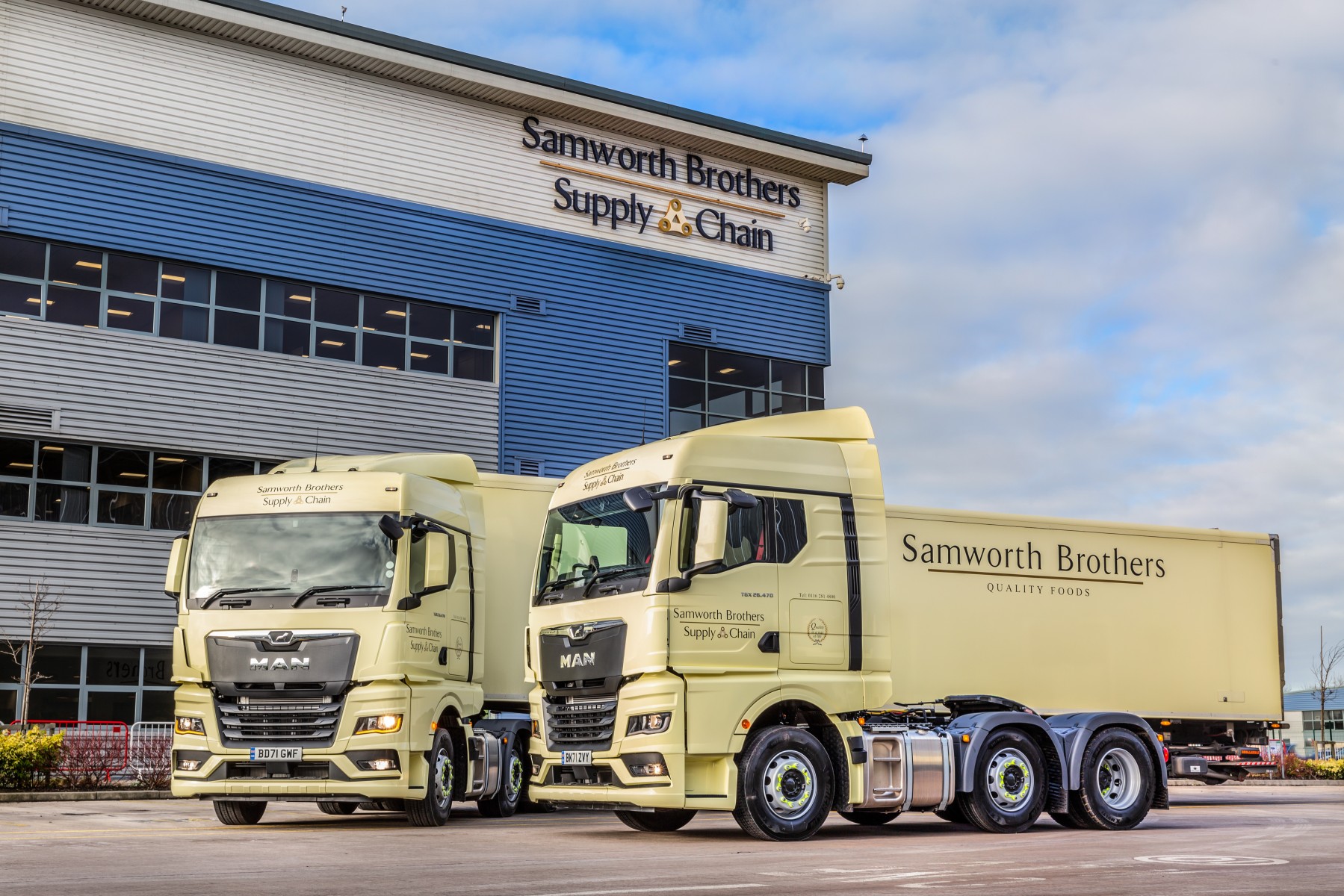
A total of 74 electric vehicles at Speedy Hire have so far been fitted with Trailar’sthin copper indium gallium selenide (CIGS) solar mats – reducing fuel consumption, saving CO2 and maintaining vehicle range.
The vehicles fitted have consisted of 50 Ford eTransit Panel vans, 20 eTransit Lutons, and a further four Electra HGVs.
Solar power provides energy to a vehicle’s 12v battery which powers all on-board electrical equipment, and the new source of power actively reduces the load on the drivetrain battery, while the vehicle is operational and in motion.
Since Trailar’s solution has been installed it has maintained the battery of each van at the optimum condition.
This has provided additional maintenance benefits and cost savings with a reduced need for any call outs for non-starting vehicles and a reduced requirement for additional battery replacements.
As a result, another 66 Speedy Hire electric vehicles are to be installed with Trailar systems this year.
Aaron Powell, Fleet Director Speedy Hire said: “When it comes to climate change, we are leading our industry on committing to reach net zero carbon by 2040, 10 years ahead of the government’s target.
“The introduction of electric vehicles into our fleet is a key initiative – this combined with the Trailar enhanced solar solution has enabled us to not only reduce our carbon emissions but also improve our fleet’s resilience and maintain operational uptime.
“From the initial trail we found that on average our vehicles require upwards of 300Wh during its run cycle.
“Thanks to Trailar, 600 WH of solar was produced during the run cycle, reducing the energy required from the vehicle by 43%.”
Leicestershire-based food producer Samworth Brothers, meanwhile, recently added the solar powered Titan system from Marshall Fleet Solutions to its refrigerated trailer fleet.
The firm operates 14 Thermo King Advancer A400 trailer refrigeration units – which the new Titan system is paired with.
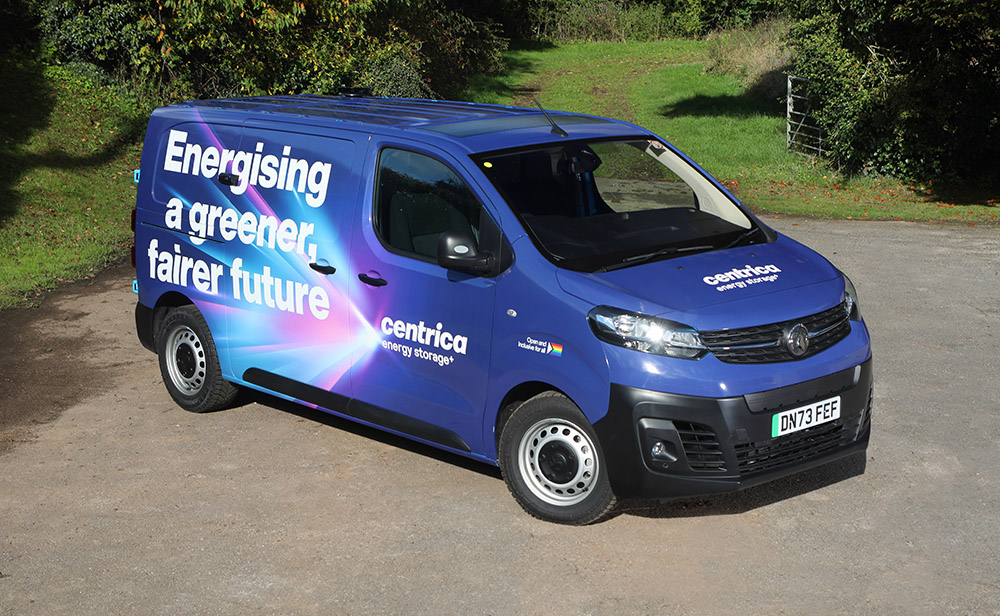
Titan believes that by harnessing solar energy through its roof-mounted panels and storing it in on-board 51.2-volt lithium high-capacity batteries, fleet operators can refrigerate their vehicles at no cost for up to 6 to 9 months each year.
In instances of insufficient solar energy, the system can also be mains charged.
The Titan system is designed for compatibility with any temperature-controlled fleet on the road, seamlessly integrating with any brand of single or multi-temperature on-board refrigeration unit and catering to a wide range of vehicle sizes including LCVs, small trucks and HCVs.
Meanwhile, Centrica, which operates one of the largest electric fleets in the country, is also prolonging the battery life of its electric vans by fitting solar panels to the roof of the vehicles.
The company has teamed up with fleet technology specialist Genie Insights to roll out the solution across 2,500 electric vans in its fleet.
These solar panels provide a trickle charge to the 12-volt batteries, keeping them operational even during periods of inactivity, or when a so-called “parasitic draw” is being taken by telematics or other ancillary equipment.
The discreet panels, constructed of CIGS technology, are lightweight, flexible and durable.
They have also been specifically designed, tested and proven to generate the optimal voltage to maintain the battery’s charge.
Matt Harries, Centrica fleet engineering and innovation manager, said: “Following the successful tests, this partnership with Genie Insights will equip all 2,500 of our electric commercial vehicles with their solar solution, ensuring the 12v batteries remain charged.
“As a result, our vans will stay on the road longer, better serving our customers’ needs.”
The transport sector faces increasing regulatory pressure and growing consumer demand for more sustainable logistics.
With logistics firms looking to save money as well as cut emissions, the move to power certain electrical aspects of vehicles by sunlight can only be a good thing.
